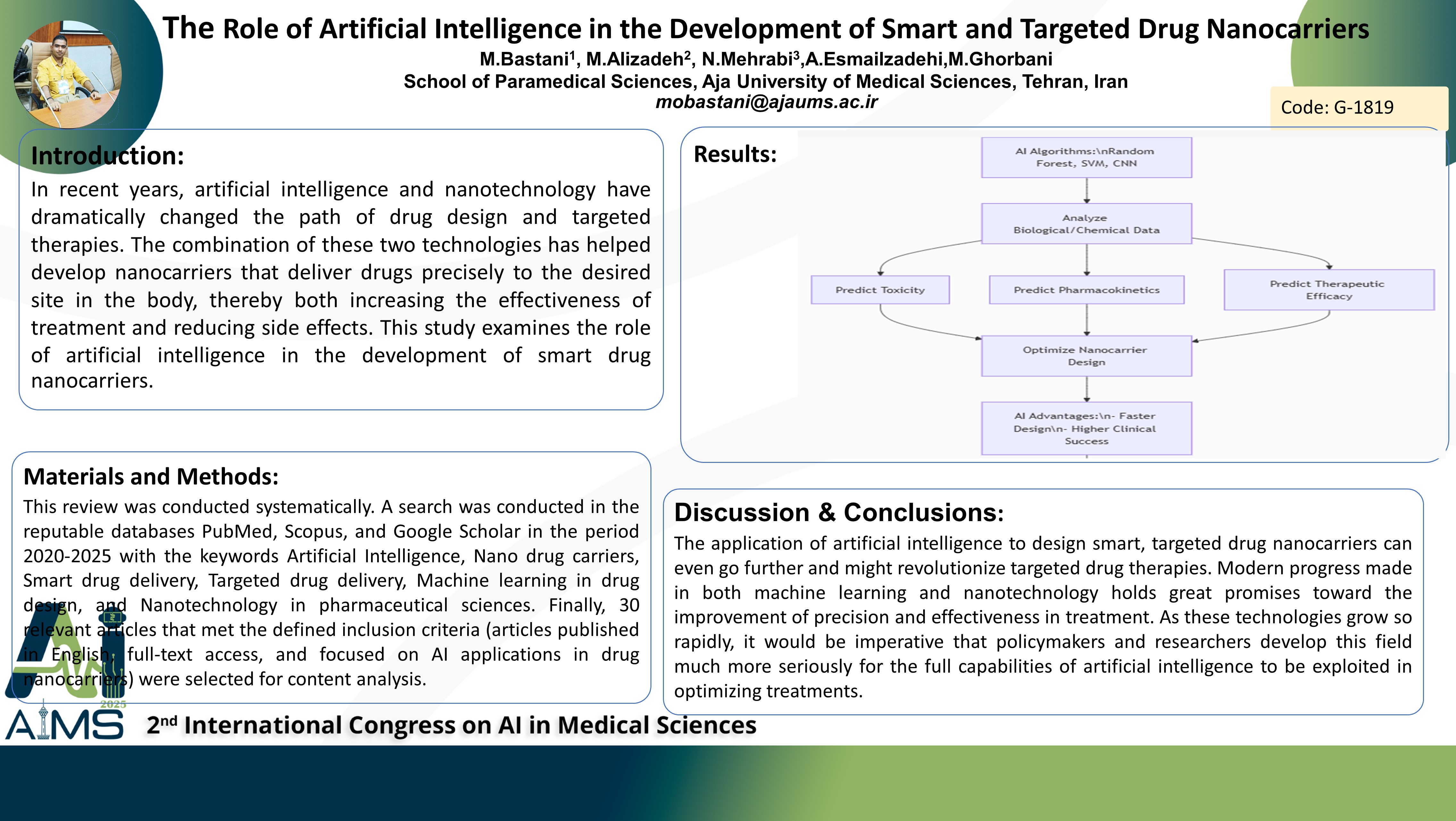نقش هوش مصنوعی در توسعه نانوحاملهای دارویی هوشمند و هدفمند
کد: G-1819
نویسندگان: Mohammad Bastani ℗, Mohammad Alizadeh, Nahid Mehrabi *, Aynaz Esmailzadeh, Mahdi Ghorbani
زمان بندی: زمان بندی نشده!
برچسب: کشف و طراحی دارو
دانلود: دانلود پوستر
خلاصه مقاله:
خلاصه مقاله
Background and aims: Background and Objectives: In recent years, artificial intelligence and nanotechnology have dramatically changed the path of drug design and targeted therapies. The combination of these two technologies has helped develop nanocarriers that deliver drugs precisely to the desired site in the body, thereby both increasing the effectiveness of treatment and reducing side effects. This study examines the role of artificial intelligence in the development of smart drug nanocarriers. Method: This review was conducted systematically. A search was conducted in the reputable databases PubMed, Scopus, and Google Scholar in the period 2020-2025 with the keywords Artificial Intelligence, Nano drug carriers, Smart drug delivery, Targeted drug delivery, Machine learning in drug design, and Nanotechnology in pharmaceutical sciences. Finally, 30 relevant articles that met the defined inclusion criteria (articles published in English, full-text access, and focused on AI applications in drug nanocarriers) were selected for content analysis. Results: The review findings specify that most of the AI algorithms particularly machine learning models such as Random Forest, SVM, and Convolutional Neural Networks (CNN) have a vital role in the drug nanocarrier design specifications. These studies assessed biological and chemical data to give a more accurate prediction of toxicity, pharmacokinetics, and therapeutic efficacy of nanoparticles. Artificial intelligence also facilitates the design of nanostructures more responsive to pH, enzyme activity, and cellular receptors through molecular dynamics simulations and optimization of targeted drug release. It is true that AI technologies have increased the speed of design, but they also improve the likelihood of clinical success and effectiveness of nanoformulations. Conclusion: The application of artificial intelligence to design smart, targeted drug nanocarriers can even go further and might revolutionize targeted drug therapies. Modern progress made in both machine learning and nanotechnology holds great promises toward the improvement of precision and effectiveness in treatment. As these technologies grow so rapidly, it would be imperative that policymakers and researchers develop this field much more seriously for the full capabilities of artificial intelligence to be exploited in optimizing treatments.
کلمات کلیدی
Artificial-Intelligence, Nanocarriers, Drug-Delivery, Machine-Learning, Nanotechnology
